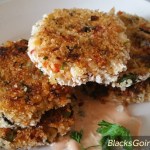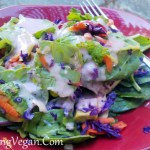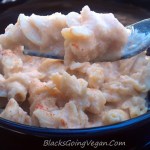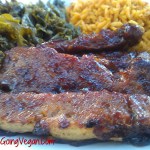Ulcerative Colitis and the Healing Power of a Vegan Diet
A personal friend shares his story of how he went from a ravaged body, sidelined with ulcerative colitis, to a man on a mission to reclaim his health. He is not vegan yet, but I’m working on him!
If you are unfamiliar with ulcerative colitis, here is information from Dr. John McDougall.
What is Ulcerative Colitis?
Ulcerative Colitis (UC) is an autoimmune disease (the body attacks itself) affecting primarily the large intestine, the colon. Crohn’s Disease (CD) is similar, and together they are referred to as inflammatory bowel diseases (IBD). These bowel diseases result in abdominal pain and bloody diarrhea. In practical terms, modern medicine fails patients with IBD for one primary reason: most practicing doctors refuse to consider the obvious connection with the diet and the bowels.
There has been a rapid increase in the incidence of Crohn’s disease and ulcerative colitis in developed countries, which has led investigators to believe IBD is due to the Western diet. Worldwide, IBD is more commonly found in populations living farthest from the equator, a trend that reflects patterns of consumption of animal foods (meat and dairy) at higher latitudes and starchy foods in those populations living nearer the equator.
Research shows that patients with IBD are more likely to consume meat, milk, fat, and refined food, and less likely to consume fruits and vegetables. Patients with UC are likely to have symptoms induced by cow’s milk. A study involving UC patients in Japan found higher-fat diets were associated with two and a half times the risk of developing IBD. Even so-called “good fats,” like omega-3, olive oil, and other vegetable fats, increased the risk for developing these diseases. A study of 60,000 people published in May of 2010 found more than three times the risk of IBD with higher protein, meat, and fish consumption.
Sulfur compounds may play an important role in the cause of IBD. Hydrogen sulfide is toxic to the cells of the colon. This substance is produced in the bowel by the action of bacteria on dietary sources of sulfur, more specifically, sulfur-containing amino acids. Animal products are the main sources of these kinds of amino acids. Beef contains four times more sulfur than pinto beans, cheddar cheese contains five times more than white potatoes, and tuna contains twelve times more than sweet potatoes.
One of the first published studies of patients with CD found two-thirds of patients treated with a healthful diet were well after two years. In one recent controlled study involving ninety-three CD patients, 84 percent achieved remission after two weeks of following an elimination diet. Predominant food intolerances discovered during this study were cereals, dairy products, and yeast.
Crohn’s disease patients suffering from severe diarrhea (twenty or more stools per day) find relief from watery stools within two to three days when they are switched from a high-fat to a low-fat diet. The reason for this almost overnight relief is that patients with CD have often suffered damage to the last part of their small intestine (ileum). As a result of this damage, bile from the liver that is normally reabsorbed by a healthy small intestine is instead allowed to pass directly into the large intestine. Here the bile acid causes severe irritation, causing a discharge of blood, mucus, and water.
In summary, for the prevention and treatment of IBD your diet should avoid all kinds of added fats, oils and animal foods. Your prime source of calories needs to come from starches, such as potatoes, sweet potatoes, winter squashes, beans, and rice. For my patients with IBD I recommend that they start with the regular McDougall Diet without wheat and soy products. If dramatic improvement is not seen over the next four weeks then I suggest they try the elimination diet, which is based on sweet potatoes, brown rice, green and yellow vegetables, and non-citrus fruits (all thoroughly cooked).
For scientific reference to the materials above see the book Dr. McDougall’s Digestive Tune-up.
Category: Veganism and African Americans

























